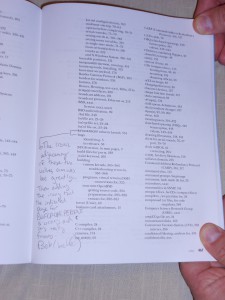I promised to post photographs of the signed copy of Absolute OpenBSD 2nd Edition that went to Bill Allaire.
Here they are. In full size, so that Bill can later use them to authenticate his copy, in the extraordinarily unlikely event that he desires to do so. (And also so that perhaps the bandwidth utilized might finally exceed that generated by my fame in the gay porn world.)
All the developers signed the first page:
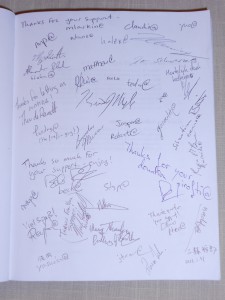
People immediately checked the index for their favorite features. Leave it to Bob Beck to find my extraordinarily subtle joke on BUFCACHEPERCENT, which I assure you I completely deliberately chose to do and was not at all an actual error.
Some developers weren’t terribly confident of their English skills. But that’s okay.
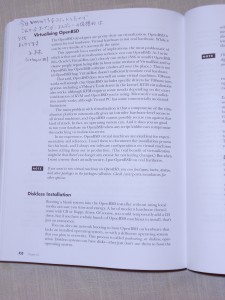
Sadly, there were some problems with the book. People were kind enough to point them out.
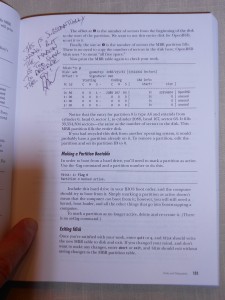
Many pages didn’t get marked up, but a few got extra attention. We now know exactly how Theo feels about file flags.
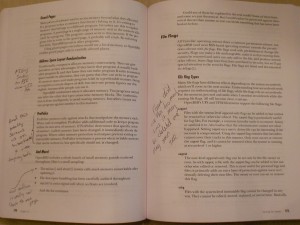
Finally, Theo was kind enough to add a footnote. He didn’t mark it from the main body of the text, however. Programmers might have mad skillz, but footnotes are much harder than they look.
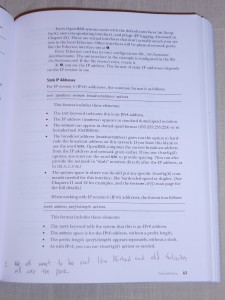
As an aside: I considered getting the developers to sign my personal copy of the book while I was there. But that would reduce the uniqueness of this artifact, dang it. So Bill gets the awesome copy and the rest of us get pix.

